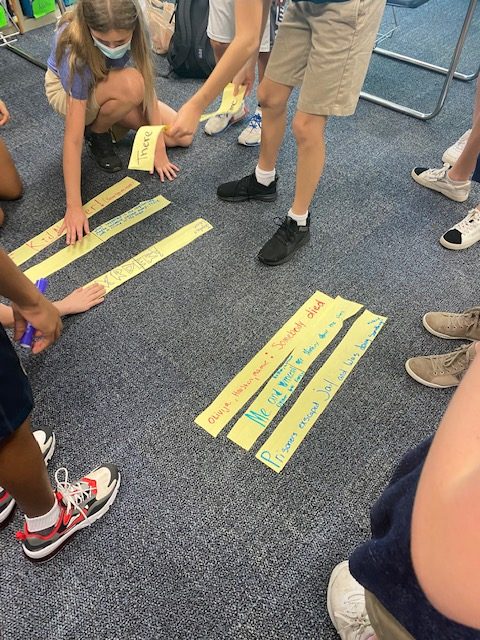No time to read? Listen instead!
Hey Everybody!
As many of you know, I went back to the classroom this year. While that journey, in and of itself, is blog-worthy, it is not what is on my mind today. Today, the thing that I am thinking about is this pattern that we humans sometimes get stuck in–when something bad happens, we just continue to think about that bad thing. So, for example, if we have a bad lesson or a bad observation or a parent gets cranky with us, we kind of begin to perseverate on that. Maybe you don’t do this–and if that’s the case, I envy you–but I know I do this and so, I’m thinking about what to do about it.
There is a personal growth principle that says, “Where your focus goes, your energy flows.” So, if we were to take the example of perseverating on the bad things that happen in our professional lives and apply this principle, it means that our energy is flowing toward our less than desirable lessons, events, and interactions. And by giving energy to these things, we inadvertently create more of these things! Ahhhhh! I don’t know about you, but I definitely do not want more bad lessons, events, and interactions. I want good ones! And I’m betting you do, too. So, how do we make that happen?
Answer: We focus on the good stuff!
So, here’s my question for you. What have you done lately that worked really well?
For me, it was this thing I called “Prediction Pyramids.”
I’ve been reading The Egypt Game with my sixth graders. In case you’re not familiar with the story, it’s about a sixth-grade girl who moves in with her grandma because her mom is off trying to be a movie star. She’s not super happy to be there and is displaying all sorts of attention-getting behaviors until she meets her neighbor who shares her interest in Ancient Egypt. Together, they invent “The Egypt Game,” which they play in an abandoned field near their apartment complex. All is going great until one day, they are frantically summoned home early. Something has happened.
When we got to this part in the story, my students, very naturally, were dying to know what was going on. But, before proceeding onward, I had them check-in with their turn-and-talk partner to brainstorm possibilities. Next, they considered which of their predictions were most likely and wrote it on a sentence strip.
Once each pair had something to contribute, we cleared the desks out the middle of the classroom and laid each of the predictions out on the floor. Then, I challenged the students to organize their predictions by putting the one that was most likely to happen on top and the one that was least likely on the bottom.
Students were jazzed about this task. They quickly rejected some predictions altogether and debated the merits of those that were left. Without me even asking them to, students grabbed their books off their desks and started flipping through pages to find evidence to support their thinking. There was jumping up and down and “Ooh, ooh, oohs,” and “Ohhhhhhhsss!” All the while, I just stepped back and said pretty much nothing.

When all was said and done, they were begging to read more because they just had to know–why were the kids in the story called home early?
So, that’s my story of what’s working to increase motivation and purpose for reading. Now it’s my turn to ask: What’s working for you?
